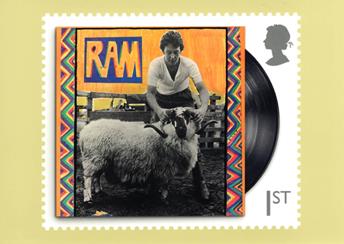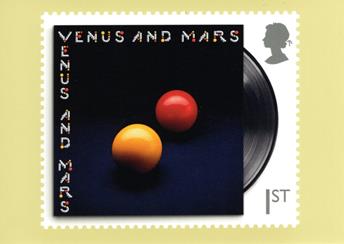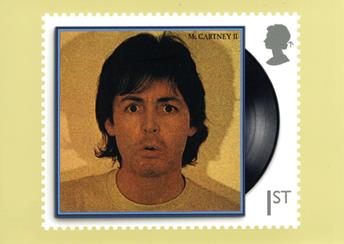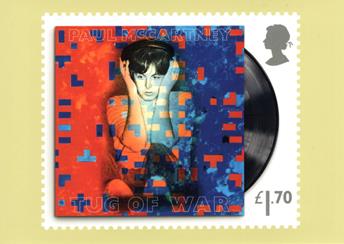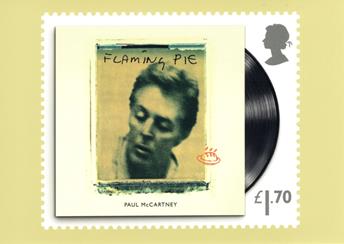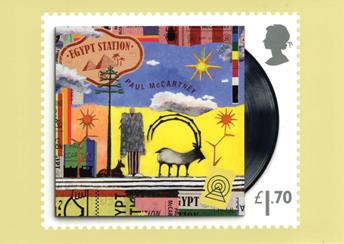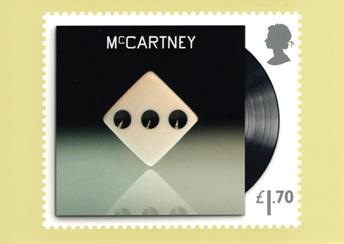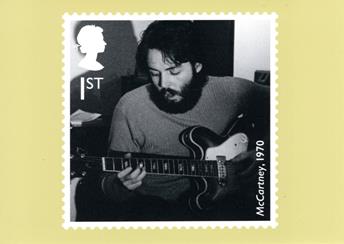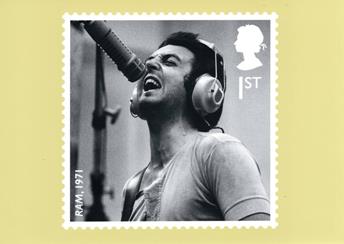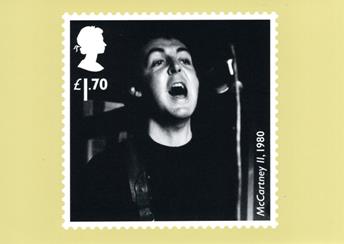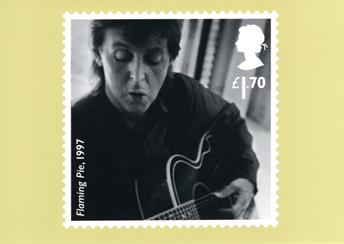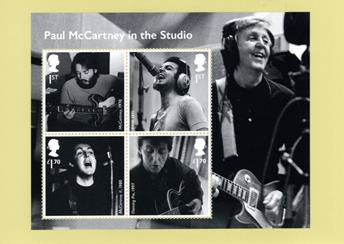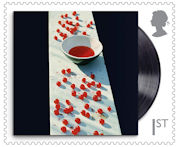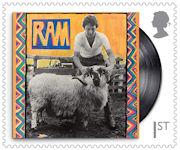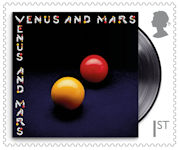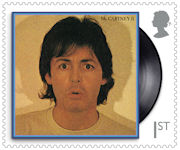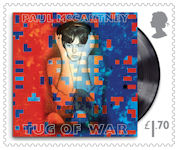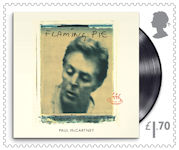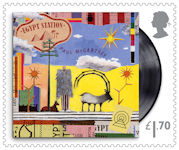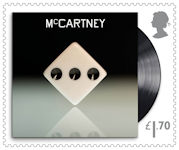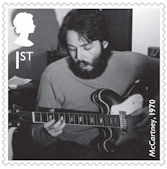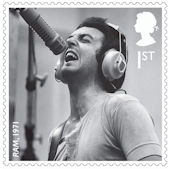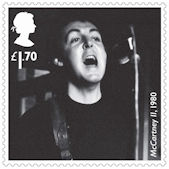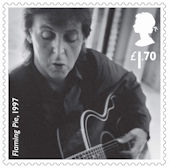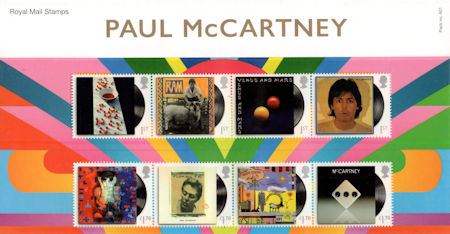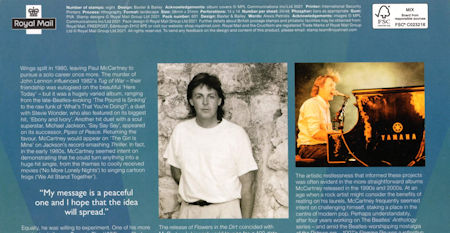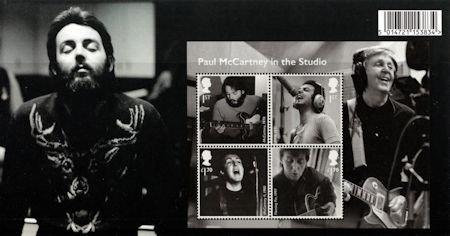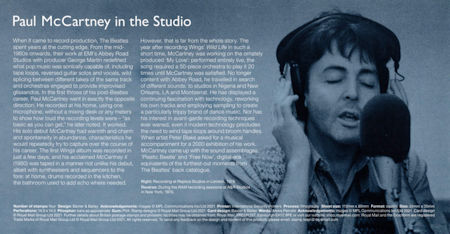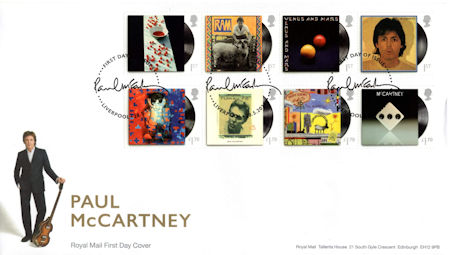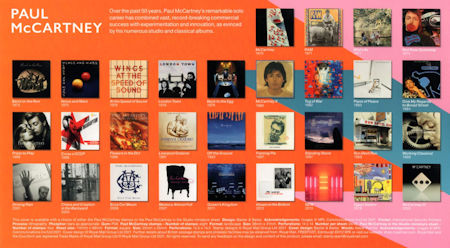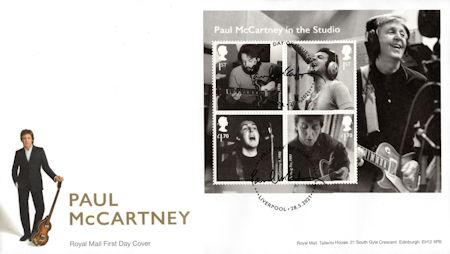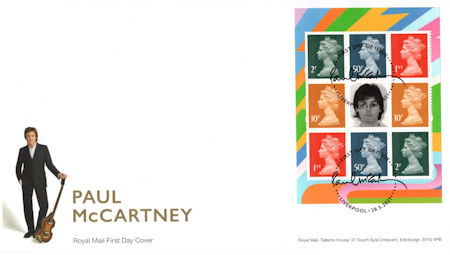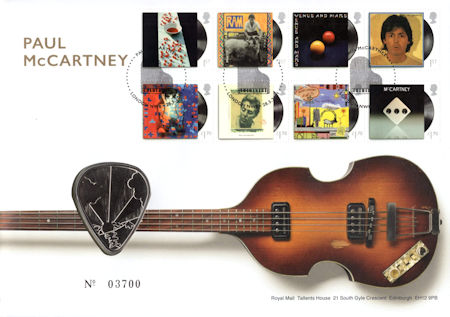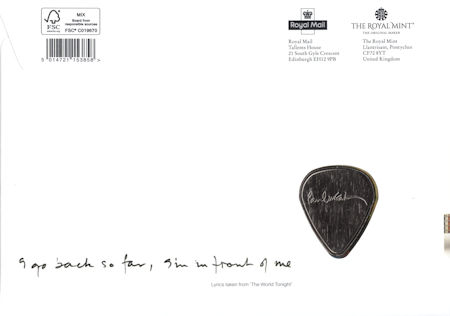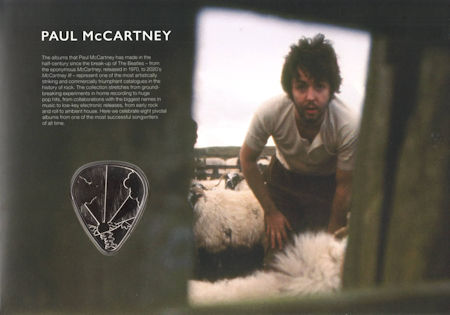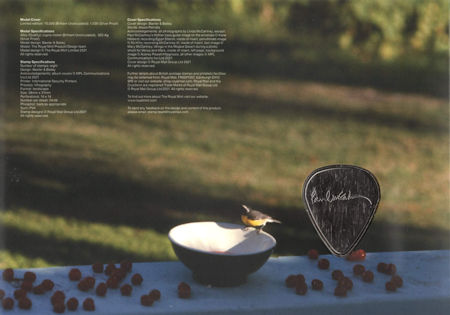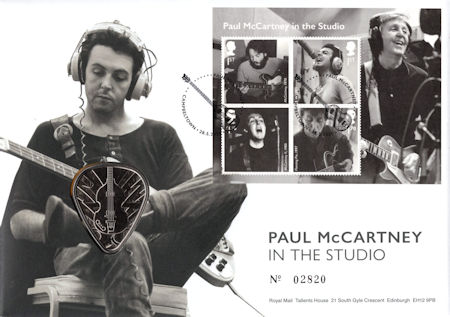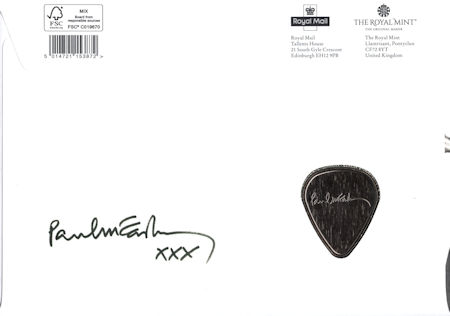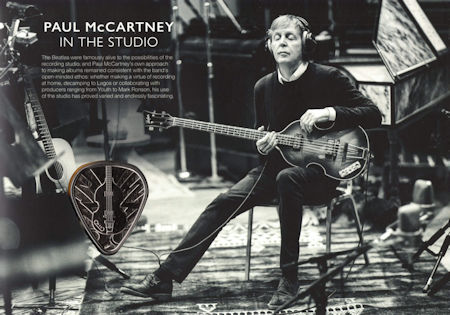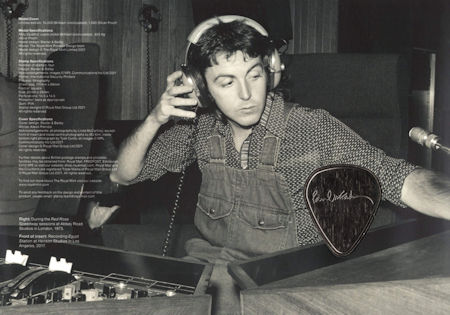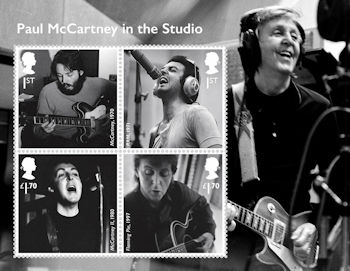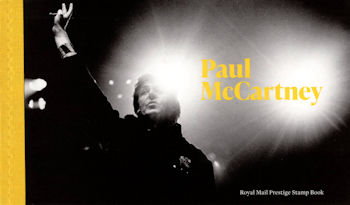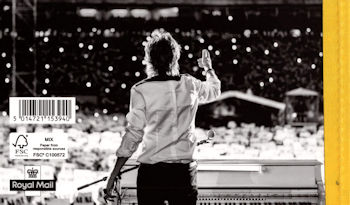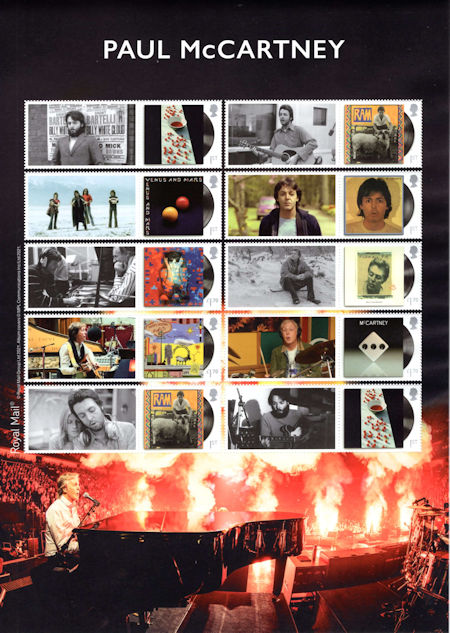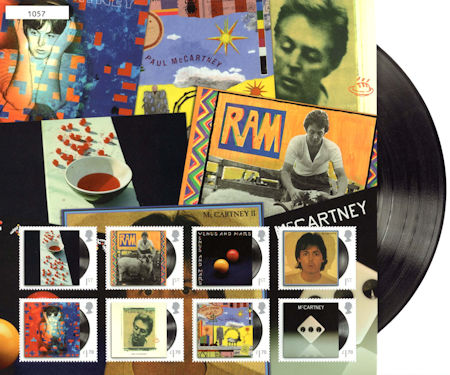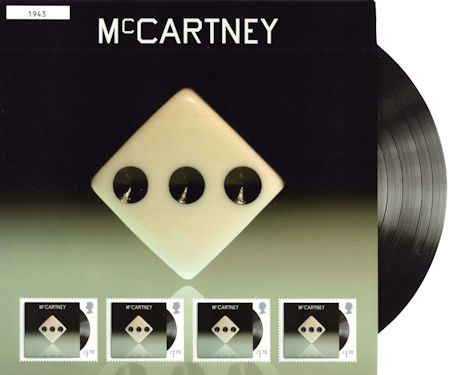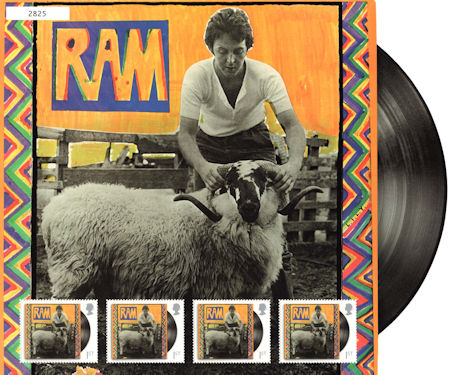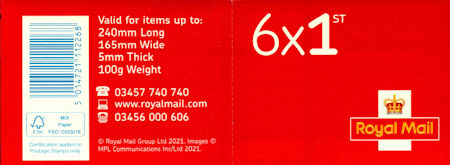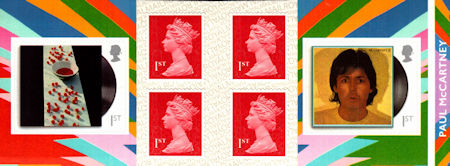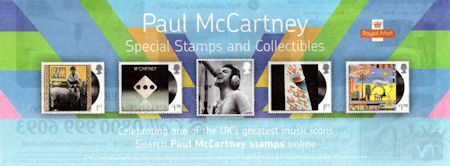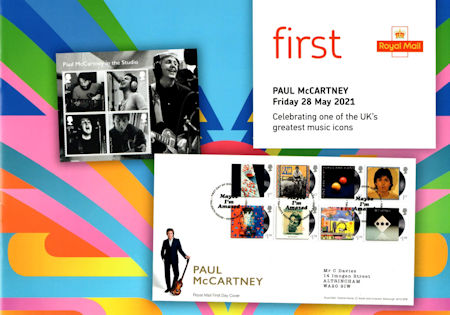Paul McCartney
2021 (May 28 2021)Commemorative
Designed by Baxter & Bailey
Size 38mm (h) x 31mm (v)
Printed by International Security Printers
Print Process Lithography
Perforations 14 x 14
Gum PVA
Stamps
McCartney (1970)
1stA clean break from The Beatles and as far from the production extravaganza of their final album Abbey Road as you can get, Paul McCartney’s solo debut was recorded mostly in his living room, with its author playing every instrument. The sound of a brilliant musical mind throwing out random ideas – and finding they all work – still sounds compelling 50 years on, with its loose patchwork of songs, fragments of songs, instrumentals and experiments.
RAM (1971)
1stMore professionally recorded than McCartney’s debut, RAM nevertheless shared its charming, homespun feel. Credited to Paul and Linda McCartney, RAM took in everything from the gentle, ukulele-driven ‘Ram On’ to the hardrocking ‘Smile Away’ and the experimental song suite ‘Uncle Albert/Admiral Halsey’, the latter an unexpected US Number One. The closing ‘The Back Seat of My Car’ defines the adjective ‘McCartneyesque’ – impossibly melodically rich, apparently effortless songwriting.
Venus and Mars (Wings, 1975)
1stVenus and Mars’s ‘Rock Show’ is a paean to the kind of huge stadium gigs that McCartney’s 1970s band Wings would help pioneer: their ensuing world tour became one of the mid-1970s’ most celebrated musical events. Partly recorded in New Orleans, Venus and Mars captures Wings at their zenith: a supremely polished band operating on the cusp of pop and rock, mixing hits – ‘Listen to What the Man Said’ – with more whimsical ideas, among them a cover of the theme from TV soap Crossroads.
McCartney II (1980)
1stOnce more recorded at home and greeted with bafflement on release, McCartney II eventually assumed its rightful place as one of its author’s most celebrated solo albums. McCartney threw himself into experiments, largely driven by synthesisers and drum machines, that ranged from the funky (‘Temporary Secretary’ or ‘Coming Up’) to the flatly bizarre (‘Bogey Music’). The same sessions produced ‘Wonderful Christmastime’, a perennial favourite of the festive season.
Tug of War (1982)
£1.70Produced by George Martin after the break-up of Wings, the global charttopper Tug of War is a songwriting masterclass. ‘Ebony and Ivory’ and ‘Take It Away’ were the big hits and the reflective tribute to the late John Lennon ‘Here Today’ perhaps its most enduring moment, but the album is densely packed with fantastic tracks, the supremely funky Stevie Wonder collaboration ‘What’s That You’re Doing’ and the gorgeous ballad ‘Wanderlust’ among them.
Flaming Pie (1997)
£1.70Inspired by the years spent working on The Beatles’ Anthology and mostly coproduced by Jeff Lynne – who had also worked on ‘new’ Beatles songs ‘Free as a Bird’ and ‘Real Love’ – and featuring a rare co-writing credit for Ringo Starr, Flaming Pie saw McCartney strip back his sound, a move that allowed an extremely strong, occasionally understated set of songs to flourish. Poignantly, Flaming Pie is also the last McCartney album to feature the backing vocals of Linda McCartney, who died the following year.
Egypt Station (2018)
£1.70In 2018, Paul McCartney unexpectedly teamed up with Adele producer Greg Kurstin and – on ‘Fuh You’ – blue-chip pop songwriter Ryan Tedder. But Egypt Station is not a straightforward lunge for latter-day pop contemporaneity: it is an impressively varied album, which switches between the raucous stomp of ‘Come on to Me’, the troubled, reflective ‘I Don’t Know’ and ‘Hunt You Down/Naked/C-Link’, the latest in a long line of McCartney tracks that segue different song fragments together in a thrillingly episodic whole.
McCartney III (2020)
£1.70Inspired by the circumstances of lockdown to return to the home-studio, one-man-band approach of the previous albums in the McCartney series, McCartney III unexpectedly appeared at the end of 2020, a critically lauded collection of songs that ranged from acoustic ballads to tough rock and roll. The experimental spirit of its predecessors in the McCartney series was underlined by its lengthy instrumental opener, ‘Long Tailed Winter Bird’, and the powerful, episodic eight minutes of ‘Deep Deep Feeling’.
PHQ Cards

